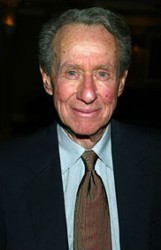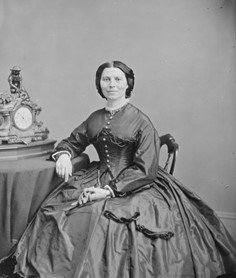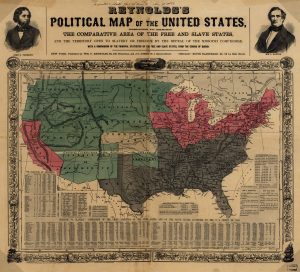It was summer in 1967, and Bonnie and Clyde the film was the first American movie to kick off the Montreal film festival in Canada. This showing was a huge success as people loved the comedic violence that the film fused together. Bonnie and Clyde film produced a whopping $22.7 million in domestic sales and influenced the audience and film industries as the movie’s content refused to be censored. Arthur Penn, the director, was shocked at the movie’s growing success, due to the challenges involved in getting the film released. The organic way that Penn became a part of the story behind the Bonnie and Clyde film is genuine and raw, as it was another unexpected success story with trials and tribulations throughout its journey.1

Arthur Penn was first associated with the Bonnie and Clyde film when the producer, Warren Beatty, who also played Clyde Barrow, hired him to be the director. He immediately got a feeling of apprehension because he was not fond of creating a film about gangsters.2 What made him finally get passionate about the content of the film was the Great Depression era that surrounded the Bonnie and Clyde duo, and how he remembered seeing the Wanted posters of the original couple during the 1930’s when he was a child. Penn’s vision for this film was not to recreate the violent behavior of the original couple, but to romanticize it to get a better connection with the audience. During the 1960s, going against the norm was always favored, and this film presented two characters who did just that in a way that seemed glorified. A lot of extraneous work was put in to capture action and violent scenes in this film, such as the use of slow motion to create chaotic and graceful movements throughout the major fight scenes. The cameras had to shoot concurrently from the same point, which made it difficult to know when to begin a scene. One of the most complicated special effects that was involved in the violent scenes was how the bullet shots were going to be interpreted. Penn described this extensive process in an interview stating that, “There were bundles of wires going up their legs and a special effects guy would trip them by making electrical contact with nails sticking up in a row connected to a battery. Meanwhile, as the bullets are going, someone else was pulling an invisible nylon line that took off a piece of Warren’s head. They were both going through contortions with their bodies, and all of this filmed in various slow-motion speeds in four cameras.”3 The effects needed to capture the violent scenes would take days due to the preparation process, and people on set would think Penn was crazy for being so specific on what he wanted to capture. Arthur had a vision coming into the film and he had a “no one can tell me I can’t” attitude towards his creation process.4

The film was a surprise to everyone, but Warmer Brothers had something to say about the film. The guy in charge of distribution at Warner Brothers called the film “complete crap,” and debated even releasing the film. After Penn and Warren Beatty pushed for the film to come out, Warner Brothers only let the film stay in theaters for a week with minimal promotion. There were also critics who disliked the film due to their misunderstanding of what the film was supposed to encapsulate. Bosley Crowther was a well known New York Times critic, who already had a vendetta against violence in films. He first saw Bonnie and Clyde at the Montreal Film Festival, and immediately was ready to do his damage on the creation. Crowther succeeded in bashing the film but did not prepare for the interaction of the people sending letters to the New York Times. Even after seeing people supporting the film, his critique persisted, but this only created more positive fan mail.5
Through all the negativity, there was plenty of positive feedback that came from this film being released. This movie was said to be one of the most popular and influential films of the 1960s. The Bonnie and Clyde film was unapologetically graphic and open towards violence and sexual content, which would later impact many other films after it to follow the same bluntness in the creative process. This film caught the attention of the youth, due to the rebellious nature of Bonnie and Clyde, and teens were asking to watch the film even when it wasn’t showing in the theaters anymore. The success continued with an impressive amount of awards given for this movie including, Academy Awards and Oscar nominations for best supporting actress, in addition to Penn getting an Oscar nomination for best director.6 Arthur Penn unfortunately died of congestive heart failure in 2010, but the legacy of Bonnie and Clyde will live on forever. It is said that only Penn could have combined the 1930s and the 1960s in such a successful and collaborative process. Bonnie and Clyde is a unique, well thought out picture, and Arthur Penn had a piece of it.7

- Tim Gray, “Bonnie and Clyde Stole the Show-And Changed Hollywood,” Variety, August 2016, 106. ↵
- “Arthur Penn (director),” Television Academy Foundation, accessed October 31, 2018, https://interviews.televisionacademy.com/interviews/arthur-penn. ↵
- Crowdus Gary and Richard Porton, “The Importance of a Singular, Guiding Vision: An Interview with Arthur Penn,” Cineaste 20, no. 2 (March 1994). ↵
- Crowdus Gary and Richard Porton, “The Importance of a Singular, Guiding Vision: An Interview with Arthur Penn,” Cineaste 20, no. 2 (March 1994). ↵
- Crowdus Gary and Richard Porton, “The Importance of a Singular, Guiding Vision: An Interview with Arthur Penn,” Cineaste 20, no. 2 (March 1994). ↵
- Devin McKinney, “Review of Arthur Penn’s Bonnie and Clyde,” Vol. 55, Issue 2, (2001): 61-70. ↵
- “Arthur Penn: a gentle man and a master of violence,” The Guardian, accessed September 31, 2018, https://www.theguardian.com/film/filmblog/2010/sep/30/arthur-penn-bonnie-clyde-tribute. ↵



17 comments
Christopher Metta Bexar
Some say the 1960s was the last great decade in cinema. Bonnie and Clyde is an example of why. It was created in part to be an antidote to the kind of gangster movies made by the great Edward G. Robinson.
It also had the great luck to star Faye Dunaway, one of the greatest stars of the 1960s and 70s, in a role which would launch her career into superstardom.
The article is very correct; Arthur Penn intentionally made a film which was the opposite of every successful gangster film which came before it, daring audiences to dislike the thieves and robbers. They are the films heroes.
Engelbert Madrid
This article was interesting, because there are not many articles in StMU History Media that tells the story of famous movies that made an impact in society. Furthermore, I didn’t know about this movie, and I’m surprised that this movie was the first film that was unapologetically graphic, which inspired other film directors to break boundaries and to be more creative.
Maya Mani
Bonnie and Clyde references have been embedded in so many other forms of art. Even children shows will reference the iconic duo, or in k pop songs such as BlackPink’s “Ddu-ddu-Ddu-ddu-ddu”. Despite controversy, the film reached great success and the fact that there are so many references speaks for this. Critics opinions and audience opinions can differ greatly, and despite credentials, the audience opinion is much more influential.
Michael Hinojosa
This was a really interesting and engaging article that had my attention caught the entire time! Bonnie and Clyde has always been one of those movies I’ve heard of and knew how influential it was but honestly never really invested a lot of time in it myself. So when I saw the title of this article I knew I had to check it out; There was so much I didn’t even know about the movie at all!
Samire Adam
Bonnie and Clyde have always been a classic duo that pretty much everyone knows about. But I had not had the chance to know how it came to be or where the idea in the first place rose from. I think it definitely takes a lot to be this driven as Arthur Penn was. Through his ideas that no one could take away from him to still going through with the project even with the controversy topic of theft and gangster aspects. Penn knew what he wanted and I think this is something very admirable about him, because he created something so known and so popular in our culture today.
Dylan Coons
Although I (like everyone else in the world) know about Bonnie and Clyde, I never watched the movie or really knew anything about it. I had no idea of the impact it has had on other films and so on. The fact that it was not loved by critics seems to be a common theme for films like this. Some of the best, most influential movies are hated by critics and loved by the people. Bonnie and Clyde are no different.
Natalie Thamm
I really enjoyed reading this article and the author did a great job of keeping the reader engaged throughout. Before the article, I knew of Bonnie and Clyde, but I did not know much about the movie and really enjoyed reading about its conception, creation and the impact it had on later films. It shows that just because critics may be very vocal, it does not necessarily have effect on the general populations feelings.
Madeline Torres
I absolutely loved this article! I have never seen the movie Bonnie and Clyde but I hope one day to see the great movie. I loved the detail provided about the director and the making of the movie as well. Bonnie and Clyde are seen are icons nowadays and many people refer themselves as the characters. As for the car used in the movie, I have seen it before but I never knew it was from this movie. Great article!
Christopher Hohman
Nice article. I have heard of the movie Bonnie and Clyde before, but I have never actually seen the film because its just too old. It sounds like it was quite the groundbreaking film. It must have set the standard for many other films in the future. It is really cool that the Penn was able to capture what life was like in both the 1930s and the 1960s. Those were two very special times in the history of our nation, and this movie captured both to a tee
Christopher Vasquez
I didn’t know that the movie Bonnie and Clyde was only released for a few weeks and that a member of Warner Brothers thought of it so poorly. Regardless of the critics, people couldn’t seem to get enough of it. I liked their spin on the tale of Bonnie and Clyde: that Arthur Penn would make the film more about the romanticism rather than the intense violence. I also liked their attempt to push the boundaries of what was accepted in the time; it’s sure made a huge impact to this day!